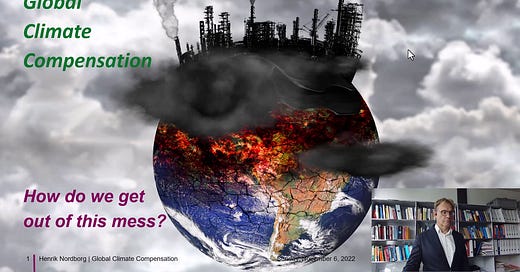The best summary of why the United Nations Conference of the Parties (aka COP) failed was written by Vera Brittain in 1933:
The Assemblies of those early years were worth attending, for the Foreign Ministers of the Great Powers had not yet realised how easily, by means of a little tact and some elegant camouflage, the League might be used as a stage on which they could play the skilled game of the Old Diplomacy circumspectly dressed up in international costume. Before 1925, perhaps as many as fifty per cent of the delegates who went to Geneva honestly believed that the organisation of international peace was a workable proposition.
— Vera Brittain, Testament of Youth
Obviously, Mrs. Brittain was not writing about COP but the League of Nations. However, the same logic applies. There is no reason for the Great Powers to agree to anything that could threaten their power. Thus, COP was designed as a stage on which the Great Powers could pretend to be concerned about climate change while continuing to plunder the planet.
In a world powered by oil, asking powerful countries to decarbonize makes about as much sense as if the Roman senate had required the legions to switch to stone axes to protect the environment. We are trapped in the ultimate vicious circle: As long as oil is strategically important, we need armies to ensure the supply. And as long as we need armies, oil will be strategically important. Catch-22!
Several people have asked me to provide a short description of Global Climate Compensation ahead of COP27. First, I did not see the point, as I have little hope that this conference will be more productive than the previous 26. On the other hand, the meetings of the COP attract some media attention, and we might as well try to benefit from that.
Here is my first attempt to present Global Carbon Compensation as a way to cut through the Gordian knot of international climate politics. The video is a bit longer than intended, as I wanted to explain the futility of previous attempts to address the climate crisis. If you want to cut to the chase, the introduction to Global Climate Compensation starts at 33:14. There is also a very quick summary at 1:02:20.
As always, I am looking forward to your feedback.





Share this post